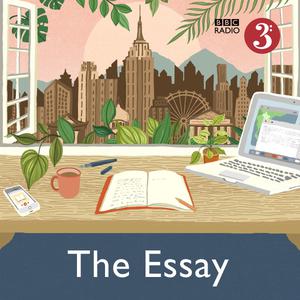
The Essay
BBC Radio 3
Leading writers on arts, history, philosophy, science, religion and beyond, themed across a week - insight, opinion and intellectual surprise.
- 13 minutes 29 secondsIndonesia's Tin Pan Alley - Tihingan in Bali
'Be not afeard. The isle is full of noises, Sounds, and sweet airs, that give delight and hurt not. Sometimes a thousand twangling instruments Will hum about mine ears...'
There is an idea that what Caliban is describing is gamelan music, and that Shakespeare had heard accounts of it as he wrote The Tempest from sailors who had recently returned from a voyage to the Spice Islands - Indonesia.
The village of Tihingan in Bali is full of noises because the chief occupation there is making gongs for gamelans, the wonderful gong orchestras of Bali and Java. Ade Mardiyati, a journalist who reports for the BBC's Indonesian service, visits Tihingan - Indonesia's Tin Pan Alley - the learn about the craft. Two crucial skills are involved; that of the smith who forges the gongs, and that , the tuner who works them to ensure they give the right note. In a sonically rich essay, recorded while these masters work, Ade explores the past, present and future of gamelan making, and music.
Presenter: Ade Mardiyati Producer: Julian May
30 November 2024, 1:02 pm - 13 minutes 29 secondsSpain's Tin Pan Alley - Centro, Madrid
The journalist Guy Hedgecoe, who covers Spain for the BBC, visits Felipe Conde's shop and workshop in Centro, Madrid. Conde is the fourth generation of his family to make classical and flamenco guitars. Many of the great flamenco musicians - Moraito, Paco de Lucia, Tomatito - have played Conde guitars, as have artists from other traditions - Leonard Cohen, Lenny Kravitz, Cat Stevens. And Paco de Lucia gave one to Michael Jackson. Guy meet Antonio Gonzalez, one of Conde's customers, who tell him what qualities he is looking for - and plays. And he watches while Felipe Conde works on a new instrument. Guy explores the state of the craft of making, the art of playing and the place of the classical guitar and flamenco music in Spain, and around the world, today.
Presenter: Guy Hedgecoe Producer: Julian May
30 November 2024, 1:01 pm - 13 minutes 17 secondsJapan's Tin Pan Alley - Ochanomizu in Tokyo
Ochanomizu means 'tea water' because of its proximity to the Kanda River, which in the Edo period provided water for the Shogun's tea. Now it is a university area - Meiji University, Tokyo Medical and Dental University, and Juntendo University all have campuses in Ochanomizu. Phoebe Amoroso reports on the way teahouses have given way to musical instrument shops. There are more than 70 in Ochanomizu's 'Guitar Street' . But you can buy harmonicas and accordions, too. In such a competitive space shops survive by specialising. Almost all the instruments sold are western, but made with Japanese materials, craftsmanship and attention to detail.
Presenter: Phoebe Amoroso Producer: Julian May
30 November 2024, 1:01 pm - 13 minutes 24 secondsTürkiye's Tin Pan Alley - Galip Dede Street in Istanbul
Galip Dede Street in Istanbul used to be famous for its antique, philatelic and book shops. But over the past 30 years more and more music shops have opened and now the street has more than 30. Esra Yalcinalp talks to the shopkeepers who sell instruments of all kinds, all the orchestral instruments. Here, too, she finds musicians who might buy a bağlama or saz, like a mandolin with a very long neck, and a kemençe or lyra, a bowed instrument, used in Ottoman classical and Turkish folk music. She gets a demonstration of the different rhythms a master can play on the darbuka, the goblet shaped drum used in Turkish classical music. She meets, too, a French musician seeking strings for her Syrian oud. Can she find these in Galip Dede? Of course. No problem.
There is a problem, though - tourism. It's driving up rents and driving out specialist music shops, which are replaced by hotels and T shirt shops. Presenter: Esra Yalcinalp Producer: Julian May
30 November 2024, 1:00 pm - 13 minutes 30 secondsChina's Tin Pan Alley - Xinjiekou Street in Beijing
The original Tin Pan Alley was in Fifth and Sixth Avenue in Manhattan, New York, where music publishers set up shop in the late 19th century, attracting songwriters and coming to dominate American popular music. Since then Tin Pan Alley has come to mean a quarter where there are music shops and where musicians gather. Cities all over the globe have Tin Pan Alleys of their own. For instance, if you wanted to buy a bass guitar in London, you'd head to the UK's Tin Pan Alley, Denmark Street.
In this week's series of the Essay BBC correspondents from Madrid to Tokyo explore the Tin Pan Alleys of their towns, talking to musicians trying out the instruments before they buy, and to the shopkeepers selling them. They explore the state of the musical culture, and culture more generally, of the countries they are reporting from.
The series begins in Beijing where Stephen McDonell visits Xinjiekou Street, where the shops sell Chinese traditional instruments: the erhu, a two string fiddle; the pipa, a pear shaped lute; the guzheng, a zither...and several others. He discovers that there is renewed enthusiasm for them and their music, and meets some musicians playing in a tunnel, not for the acoustic but because, in an odd reversal of the norm, if they play in the street young people object to the noise and shop them to the cops. Presenter: Stephen McDonell Producer: Julian May
30 November 2024, 12:52 pm - 13 minutes 30 secondsAmber
Scotland has been blessed with some of the most exciting of gemstones, but knowing where to find them is the secret.
Kenneth Steven was given a piece of amber when he was a child, found supposedly on Iona. This is the story of amber and where it actually comes from.
Kenneth tells the story of amber in Scotland and in Ireland. Amber necklaces from Ireland are somewhere in the region of three thousand years old. Those necklaces are usually found in bogland hoards and in caves. Perhaps they were kept there for safety, or as offerings to the river or to water deities. It’s surely a sign of the value that was ascribed to them that these amber relics are most often found close to gold. This would suggest that amber was a status symbol for the wealthy and powerful.
Presenter Kenneth Steven Producer Mark Rickards
A Whistledown Scotland production
30 November 2024, 12:45 pm - 13 minutes 30 secondsSerpentine
The first stone Kenneth Steven began collecting in childhood was serpentine from the beaches of the island of Iona. Here he tells the story of the search for the finest gems.
It was Kenneth's mother who’d taught him to search for serpentine. She explained to him the difference between these waxy, much softer pebbles and stones made of marble. Those are duller; they don’t polish the same, and once out of water they have a drabness about them. You can tell a piece of serpentine because as soon as it’s absorbed the oils from your hand it’s polished, glimmering.
Presenter Kenneth Steven Producer Mark Rickards
A Whistledown Scotland production
30 November 2024, 12:44 pm - 13 minutes 30 secondsAquamarine
The great Victorian collector of minerals Matthew Heddle mentions two places in particular for the finding of aquamarine in Scotland, one the island of Arran and the other a mountain in the Cairngorms. But locating these gems is another story.
The Cairngorm mountains are a kind of fortress. There is nowhere else like them in Scotland. You enter their world from one side or another and thereafter are inside them until you withdraw once more. You become aware of other noises than the ones that dominate our days: you hear streams, the breeze lifting the pine trees, the wind in the high hills once you have climbed into them. It’s an elemental place: pure and to all intents and purposes undamaged, undisturbed.
Kenneth Steven explores the history of this semi-precious stone and reflects in poetry on his finds.
Presenter Kenneth Steven Producer Mark Rickards
A Whistledown Scotland production
30 November 2024, 12:43 pm - 13 minutes 30 secondsAgate
Scotland has been blessed with some of the most exciting of gemstones, but knowing where to find them is the secret. A rare edition of 'Scottish Gem Stones' by W J McCallien led Kenneth to the discovery of the riches to be found on Scotland's mountains and shores.
The mineralogist Matthew Heddle, the great 19th century collector of Scottish gemstones. was particularly fond of agates. The wonderful thing about banded agate is that each one is unique; you’ll never know from looking at the outside what the heart of it may reveal. The counties of Angus and Fife have fabulous banded agates on the shores and in the fields, but finding them is about more than just luck.
Kenneth Steven goes in search of the precious stones and reflects on his finds in poetry.
Presenter Kenneth Steven Producer Mark Rickards
A Whistledown Scotland production
30 November 2024, 12:41 pm - 13 minutes 40 secondsGold
Scotland has been blessed with some of the most exciting of gemstones, but knowing where to find them is the secret. A rare edition of 'Scottish Gem Stones' by W J McCallien led Kenneth to the discovery of the riches to be found on Scotland's mountains and shores.
In the first episode, Kenneth tells the story of Scotland's short-lived gold rush in 1869, when 600 gold miners made their way to Sutherland in the hope of a major find.
Kenneth searches for the elusive treasure himself, and reflects on his experiences in poetry.
Presenter Kenneth Steven Producer Mark Rickards
A Whistledown Scotland Production
30 November 2024, 12:39 pm - 13 minutes 46 secondsMamoru Samuragochi
Phil Hebblethwaite examines five classical musical hoaxes and controversies, from the early twentieth century to the modern day. These are origin stories that have fooled and perplexed some of the greatest experts. In an age of misinformation, when faking it has never been more prevalent, the series unravels the stories of some of the most brazen and confounding composer controversies. What is the appeal of engineering a hoax? And why do we fall for them so easily? It’s a journey that raises questions about scholarship, authenticity and our faith in expert opinion.
Mamoru Samuragochi became famous in the 2000s as the ‘Japanese Beethoven’ – a deaf composer whose music touched millions of classical fans and crossed over to a mainstream audience by being used in computer games. But was Samuragochi actually deaf and was he even composing his own works? In his last essay in the series, Phil considers the impact of hoaxes on our trust in authenticity and celebrity.
Written and presented by Phil Hebblethwaite Producer: Jo Glanville Editor: Joanne Rowntree Researcher: Heather Dempsey Studio Engineer: Dan King A Loftus Media Production for BBC Radio 4
6 November 2024, 12:00 pm - More Episodes? Get the App
Your feedback is valuable to us. Should you encounter any bugs, glitches, lack of functionality or other problems, please email us on [email protected] or join Moon.FM Telegram Group where you can talk directly to the dev team who are happy to answer any queries.
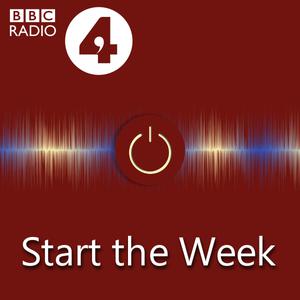 Start the Week
Start the Week
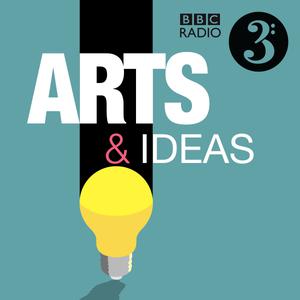 Arts & Ideas
Arts & Ideas
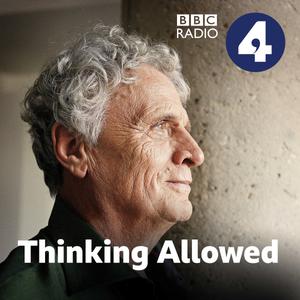 Thinking Allowed
Thinking Allowed
 A Point of View
A Point of View
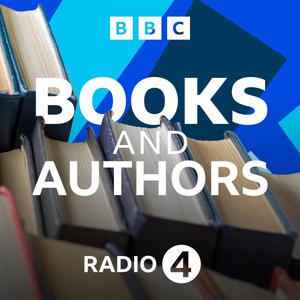 Books and Authors
Books and Authors
 The TLS Podcast
The TLS Podcast